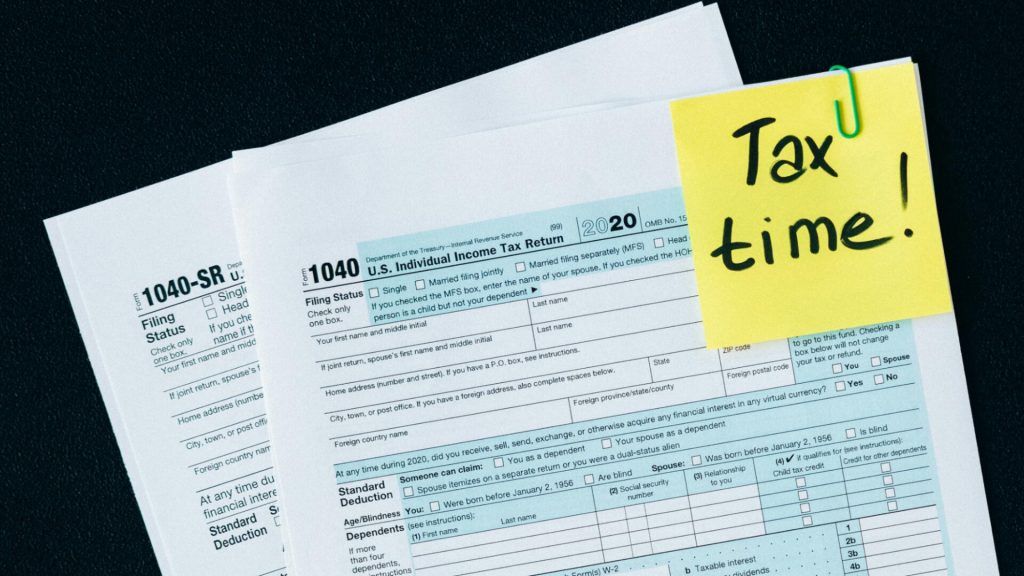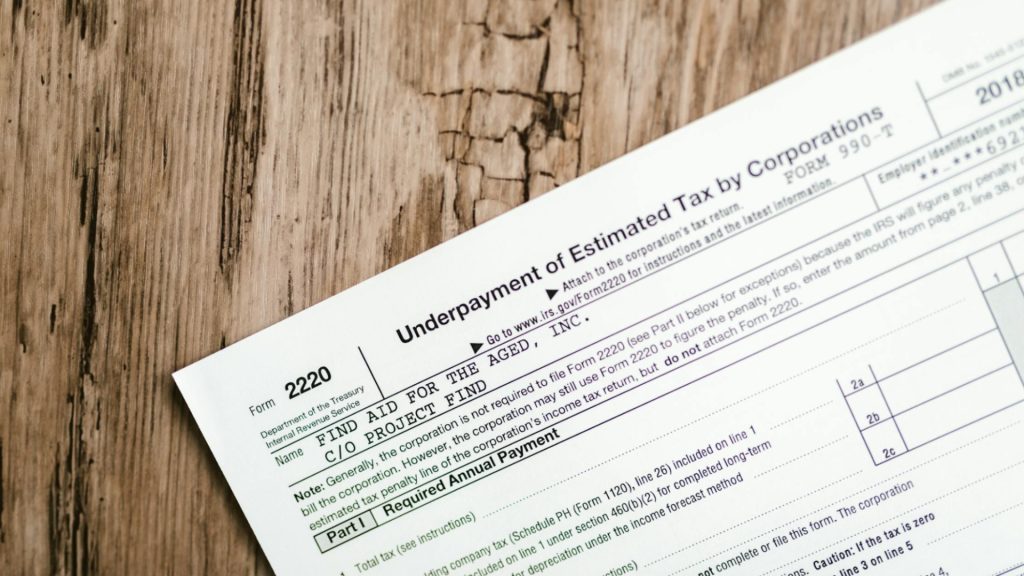The Internal Revenue Service is an organization that most Americans go out of their way to avoid. While taxes are an obligation, they’re something that nobody likes to think about, or truly likes to pay. Receiving a return on overpaid taxes is one of the small perks that comes from the organization, after weeks of uncertainty regarding whether you filed your taxes appropriately.
The IRS as a Recent Invention
The IRS is a fairly recent American invention. The first iteration of the IRS was formed in the early twentieth century, and the only obligation that the organization had in the first years was to collect tax returns from Americans, without validating the revenue.

It wasn’t until the second half of the twentieth century that the IRS grew teeth, and started to pursue the taxpayer revenue that the United States was owed. The organization has undergone multiple different reforms, most notably in the 90’s.
Recent Changes to the IRS
The two most recent changes to the IRS have happened in the last six years. In 2018, during the Trump administration, significant budget cuts led to a 15% reduction of the IRS workforce, which included a decline of more than 25% of its enforcement staff.

These budget cuts were reversed recently, though. Joe Biden’s inflation reduction act included $80 billion in funding which was dedicated to closing the tax gap. Specifically, the Inflation Reduction Act called for the IRS to use the funding to enforce tax compliance by the wealthiest tax evaders, doing so through increased staffing of their enforcement staff.
Low Morale Regarding the IRS
Morale regarding the IRS has been incredibly low over the last several decades, which is, in part, what has led to the reduction of funding. Many Americans believe that the sole purpose of the IRS is to steal their hard-earned money through taxes, and allocate it to ventures that Americans don’t believe in or don’t support.

The IRS is more complicated than that, though. While it’s true that the job of the IRS is tax enforcement, the IRS also seeks to protect Americans from financial scams and other issues regarding their taxes and personal information, even if they’re the ones collecting the information in the first place.
The “Dirty Dozen”
In pursuit of this protection, the IRS releases a yearly list called the ‘dirty dozen.’ This is a list of the most common scams and frauds that are being perpetrated against Americans every year, occurrences of which always spike around tax time.

Tax day in America is April 15, which is rapidly approaching. This means that fraudsters are working hard, attempting to steal money from hardworking Americans that they have no right to, and despite negative public opinion, the IRS is working hard to spread the word about the dirty dozen to protect average Americans.
A List of Twelve Scams
The dirty dozen campaign started in 2002, and it lists 12 scams and schemes that are used every year to put taxpayers, businesses, and tax professionals at risk of losing money or personal information.

The Dirty Dozen is not a legal document or a formal listing of enforcement priorities, per se, but the education effort is designed to raise awareness and protect taxpayers and tax professionals from common tax schemes.
A Resurgence of Many Schemes
2024 has seen the resurgence of these schemes, and multiple news outlets have reported on the issue to keep taxpayers informed. One scheme relies on scammers portraying themselves as helpful IRS workers, looking to help Americans to set up an online account for their taxes on IRS.gov.

Setting up an account with the IRS requires inputting sensitive information such as address and social security number, which is the point of this particular scam. This is the personal information necessary to steal someone’s identity, which can cause years of headache for individuals should they be on the receiving end of it.
Stealing Sensitive Information
The sensitive information can also be used to attempt to steal an individual’s tax refund, according to IRS Commissioner Danny Werfel. “An Online Account at IRS.gov can help taxpayers view important details about their tax situation,” he said.

“But scammers have realized the sensitive information there is valuable to them, so they’re now focusing on tricking people that they need help in setting up an account. This is just an elaborate scam designed to obtain valuable and sensitive tax information that scammers will use to try and steal a refund.”
Phishing and Smishing
Another scam that is becoming increasingly important in 2024 is evolving methods of phishing and smishing. These are also scams that seek to steal important information from taxpayers, though they don’t use phone numbers and false call identities to try and trick people in this case.

Phishing is an old scam technique, where a fraudster sends an email pretending to be the IRS that “lures the victims in the scam with variety of ruses such as enticing victims with a phony tax refund or threatening them with false legal or criminal charges for tax fraud,” according to the IRS.
About Smishing
Smishing uses similar tactics. These fraud messages are sent via text message, rather than email, and they will use alarming language to make a recipient believe that their information or accounts have been compromised.

The text messages will then convince the recipient that only they – the text message sender – have the solution to their problem. A link is often provided, and it’s these external websites that individuals are sent to where their information can ultimately be stolen.
Warnings from the IRS
In both of these cases, the IRS warns individuals to “never click on any unsolicited communication claiming to be the IRS.” The website could ask for information, or it could go further and install malware on the person’s computer or phone. “It may also be a way for malicious hackers to load ransomware that keeps the legitimate user from accessing their system and files,” the agency further explains.

In order to combat these specific scams, the IRS requests that anyone who has received a suspicious-looking email or text message forward the communication to an email that was specifically designed to track these issues. For those who have accidentally clicked on suspicious links in these types of scam emails, the IRS has also set up an identity protection page for taxpayers to preemptively visit.
Scammers are Relentless
Regarding this particular scam, the IRS has also released information that it will “never initiate contact with taxpayers by email, text, or social media regarding a bill or tax refund.” They’ve also clarified that most contact from the IRS is conducted through regular mail, rather than electronic or verbal communications.

Werfel commented on this scam as well. “Scammers are relentless in their attempts to obtain sensitive financial and personal information, and impersonating the IRS remains a favorite tactic. People can be anxious to get the latest information about their refund or other tax issues, so scammers frequently try using the IRS as a way to trick people.”
Claiming Fraudulent Credits
Some of the other Dirty Dozen scams involve scammers convincing taxpayers to fraudulently claim different credits on their taxes that they don’t qualify for. Some of these credits include the Employee Retention Credit and the Fuel Tax credit, both of which can cause issues for taxpayers and businesses that fraudulently try to claim them.

The best way to combat these particular scams is to use a tax professional and an accountant to file your taxes, particularly if the return has to be itemized. Services like TurboTax are good for simple returns, but anything more complicated should be looked over by a professional to prevent individuals from being audited.
Americans on the Lookout
The Dirty Dozen is only just beginning, and Americans should be on the lookout for anything that seems fishy regarding taxes. That might be phone calls or emails that just don’t seem right, or it could be people seeming a little too friendly when it comes to filing your taxes.

Personal information is one of the most important and precious pieces of your identity to protect, and tax season creates unique vulnerabilities for Americans. It’s important to keep your information close, and to be on the outlook for any sort of scam during this time of year. For most Americans, tax season is a beast, but at least it’s almost over.





